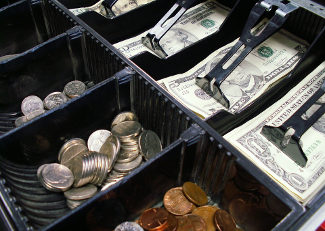Currency Risk and Retirement: Whither the Dollar?
If you’re nearing retirement, or even just starting to plan for retirement, you’ve probably started putting together a list of all the things you need to do and all the things you need to avoid. Make the right investment choices, diversify your portfolio, save more money, come up with a budget. You think you’ve taken care of every possibility, thought of every eventuality, and made multiple contingency plans just in case anything goes awry. But have you thought about currency risk?
The Dollar as the Global Reserve Currency
Americans have been both blessed and cursed that the US dollar has acted as the world’s reserve currency since the end of World War II. The Bretton Woods monetary system that was enacted in the aftermath of the war established the dollar as the reserve currency of choice, backed by a certain amount of gold, with the dollar redeemable by foreign governments for gold. That was supposed to bring stability back to a world monetary system that had been reeling for over 30 years from a combination of wars and depressions.
Americans were blessed because the dollar’s status as the world’s reserve currency meant that it would always be in demand by foreign countries. That pre-eminent status would mean lower borrowing costs for government debt, ease of foreign trade, etc.
Americans were cursed because their government officials very quickly realized that they could take advantage of the dollar’s reserve currency status to create more dollars and use those dollars to buy more goods before that monetary inflation showed its face in the form of higher prices.
Other countries eventually got wise to this money printing and began to redeem their dollars for gold. Facing an eventual depletion of gold reserves, the United States decided to close the gold window in 1971, removing the last remnant of gold backing the dollar had left. From then on out, the dollar would be a fiat paper currency freely floating against other world currencies.
The Dollar’s Reserve Status Is Dwindling
Since the closing of the gold window, the dollar retained its reserve currency status, both out of force of habit and because there was really no other currency that could serve as a credible alternative. But that has begun to change.
China has begun making real efforts to establish its currency, the yuan, sometimes called the renminbi, as an alternative to the dollar. Both Russia and China have pledged to reduce their reliance on US-based payments systems, creating payment clearing systems denominated in yuan. As a response to US sanctions, Russia has just announced that it is taking even further steps to reduce its dependence on US payments systems and the dollar. Since sanctions nowadays often rely on cutting off foreign countries’ access to the US financial system, if other countries preemptively avoid that access then sanctions will have no effect.
The danger in the United States government weaponizing the US financial system in that manner is that other countries will inevitably create competing payments system that bypass the US, and may eventually adopt currencies other than the dollar to settle payments. As Russia and China are both large gold producers and gold consumers, there is even speculation that any future world monetary system may revolve around a gold-backed yuan.
For Americans who are used to the dollar’s dominance, that could wreak havoc on their investments. It won’t happen immediately, but 20, 30, or 40 years from now US financial markets could find themselves in real upheaval as the demand for the dollar drops. Since Americans’ financial investments and assets are dollar-denominated, that could hurt them badly.
That’s all the more reason to hedge against that currency risk by investing in gold. Gold is a universal currency. Every country recognizes the monetary role of gold, which is why every central bank holds or tries to hold gold. When demand for dollar-denominated stocks and bonds falls as the dollar loses its status as a reserve currency, gold will step into the breach for American investors, as gold-denominated assets will outperform dollar-denominated assets.
Gold will serve to shore up retirement portfolios, protecting wealth and retirement assets. Gold is in demand all across the world and always will be. So if you want to ensure that your assets are still working for you in retirement, make sure to make gold a vital part of your investment portfolio.

